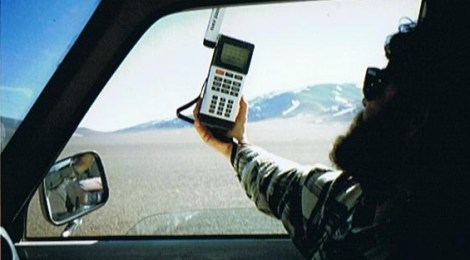
Lost because of Technology
by Victoria Jackson
For some people, technology is oxygen; they can’t breathe without it. For me, it’s the Titanic. It seems extravagant, luxurious, and can appear to break through almost anything, but when it hits an iceberg, everything falls apart including me.
Being a teenager in today’s world, I am surrounded with technology. I need a car to get to my job, because it would take too long to walk; I need a phone in order to speak with someone, because face-to-face contact is too uncomfortable; and all of my schoolwork is submitted through the internet, because turning my work in on paper is too unorganized. Technology is advancing quickly, which isn’t necessarily a bad thing; however, as technology advances, so does our reliance on it. It is imperative to be able to thrive without technology. In today’s society, we forget how to complete tasks without the use of our phones, our cars, or the internet which can be dangerous.
I was driving alone around Akron, Ohio, before I knew the area like the back of my hand. I was trying to find the campus bookstore to buy books for my fall semester classes. All I had with me was my phone, a GPS, and driving directions that I had printed from the internet. Carefully, I read the directions line by line making sure I didn’t mistake my left from my right. Then, I set the papers on my lap and began driving, occasionally referring back to them. From freeway, to highway, to road, I followed the directions precisely. Eventually, the red low fuel light lit up my dash. I pulled over to the nearest station, filled the tank up, and was back on the road in no time.
I had already been driving for three minutes before I realized that I was on the wrong street. Immediately, anxiety struck me. My body grew warm, my hands became tense, my jaw clenched, and my mind began to race through the worse outcomes. I would be stranded forever. No one would be able to find me. Suddenly, I remembered that I brought a GPS. I took several deep breaths, relaxed my hands, and reached for it. My fingers slid across its touchscreen surface until they found the “on” button. I impatiently pushed it. Nothing happened. My hands dropped the GPS and let it fall to the floor of the car. Thank goodness I remembered to bring a phone. I took another deep breath. My thumb held down the power button, desperately waiting for it to turn on. Nothing happened. I held the button down once more only harder. Again, nothing happened. My head began to spin and my stomach became nauseous. My hands gripped the sides of the seat trying to stop the spinning. All my backups were gone. There was no do-over or rewind. I was stranded. I was hopeless.
Eventually, I gained the courage to keep driving until I came across another gas station. Unsure of myself, I walked in and began browsing the map section. Easily, I found one labeled “Akron, Ohio.” I opened it and started looking for where I was and where I was supposed to be. I thought to myself, “Who am I kidding? I can’t read a map!” It was unfortunate and extremely embarrassing, but true. I never felt inclined to learn how to read a map, because I never needed one; I always had technology to help me. Eventually, I got the nerve to do one of the most unthinkable things a teenager could do: I spoke with the cashier face-to-face and asked her for directions.
Every now and then, we all have moments where our phones don’t work like they should, our internet won’t load, or our computers aren’t fast enough. Our reliance on technology is what causes the inability to complete the job at hand. If we didn’t rely on technology as much, we would be able to finish tasks with minimal problems. I’m not saying we should avoid technology. Technology can be efficient and sometimes quicker than other methods, but if we become too attached to it, we won’t know what to do if it they were to break down unexpectedly. It is crucial that we prevent technology from becoming our personal Titanic.